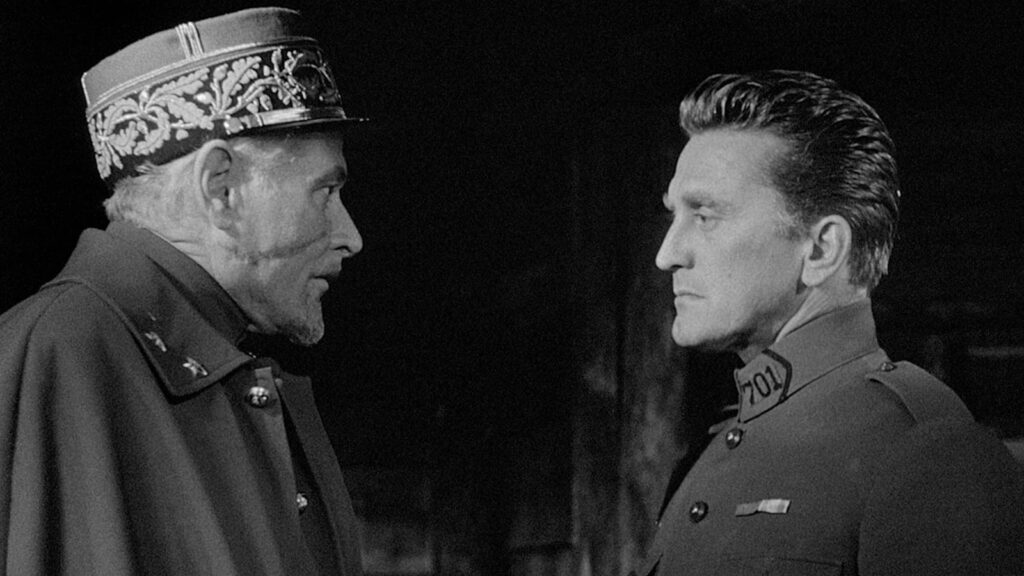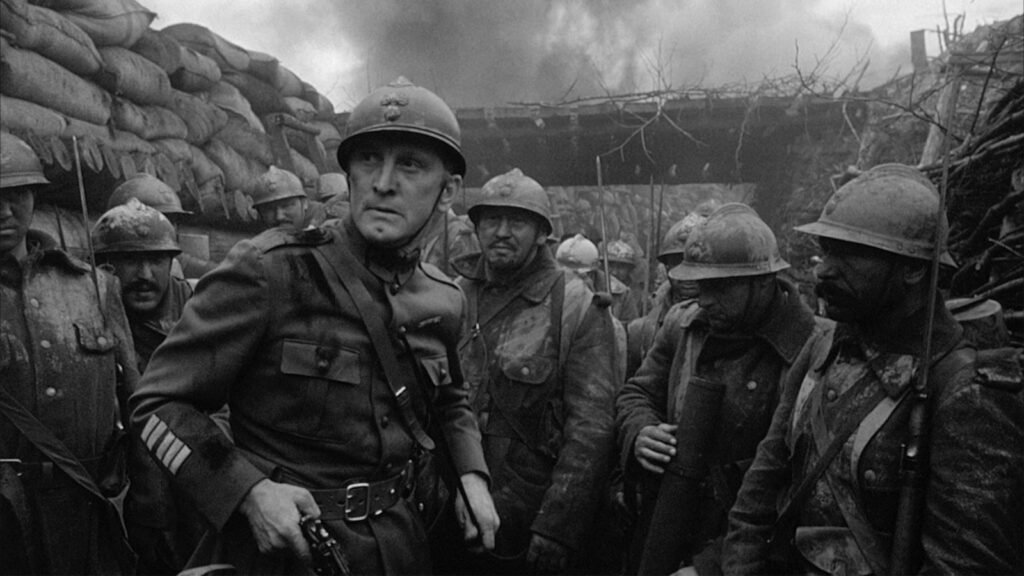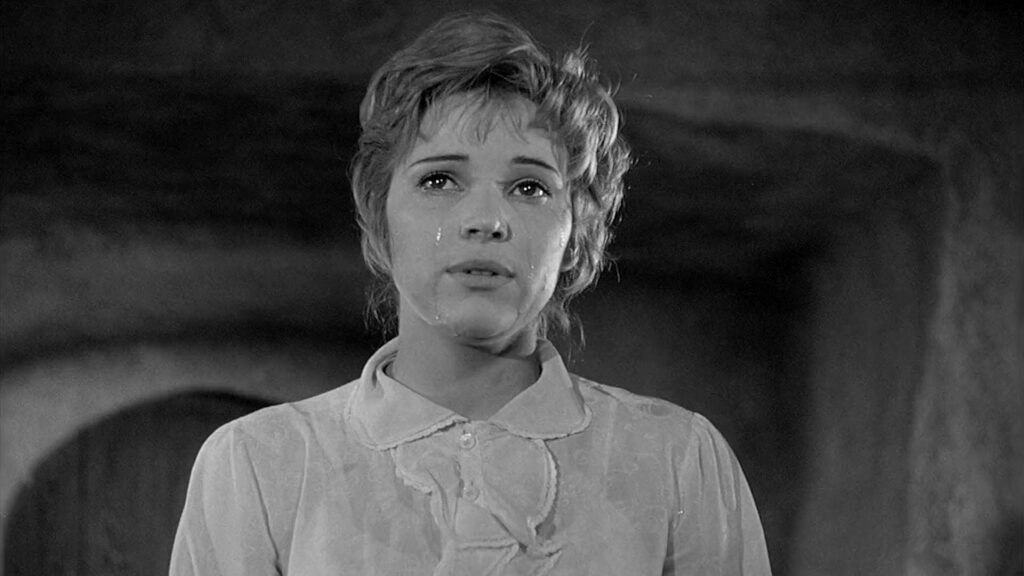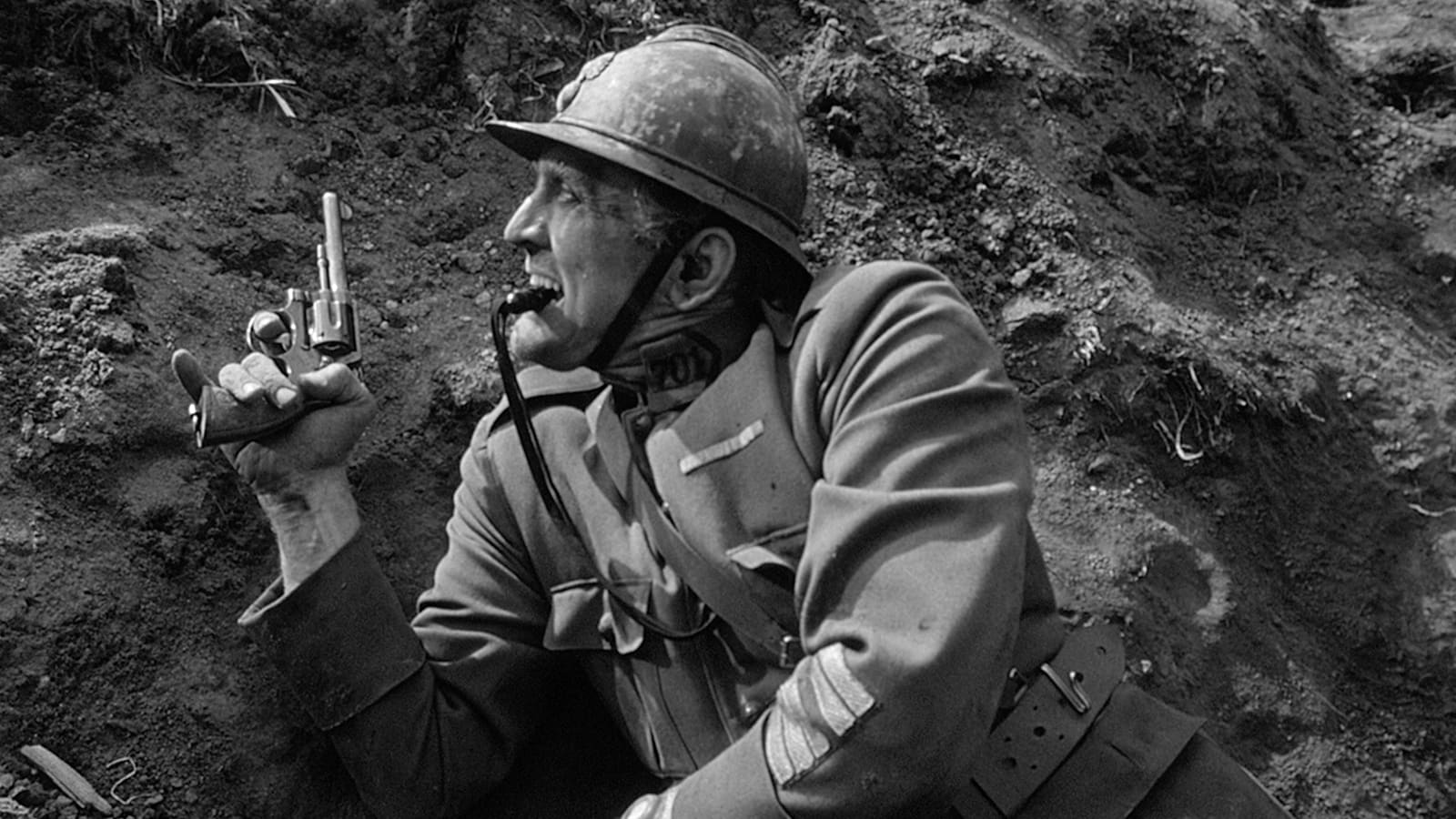At its core, Paths of Glory is about politics wrapping itself around war. It is a film concerned with corrupted institutions that prioritize personal ambition over human dignity. This is a treatise on how power routes itself without responsibility. The message of Paths of Glory runs deeper than just “war is bad because of x, y, and z.” If anything, the film is more of an anti-authority statement that happens to concern itself with war, where moral actions are justified not through consistently applied principles but merely by positions of authority.
Kubrick’s Visionary Direction

Stanley Kubrick was in his late 20s when he made this masterpiece in 1957, already a visionary in an evolved form. The one constant in Kubrick’s films is characters constantly struggling with an incomprehensible absurdity, whether it’s war (Paths of Glory, Dr. Strangelove, Full Metal Jacket), human evolution (2001: A Space Odyssey), a dystopia denying free will (A Clockwork Orange), cyclical abuse (The Shining), or a secret orgy club on a New York Christmas night (Eyes Wide Shut).
Kubrick’s keen eye for detail is evident, employing wide shots that envelop the characters. For instance, in Paths of Glory, the camera dollies wide as Colonel Dax (Kirk Douglas) argues for the accused in the court martial scene. Most directors would have shot that using a standard push-in or close-up, but in Kubrick’s hands, the wide shot emphasizes Dax’s passionate defense, which will ultimately fall on deaf ears.
The Weight of Real War Experience

I wonder if Paths of Glory worked so well because many of its actors were actual veterans of war. Kirk Douglas, Ralph Meeker, Wayne Morris, Richard Anderson, Joe Turkel, and Bert Freed all served in the U.S. Navy during World War II. Adolphe Menjou, who plays Major General Georges Broulard, served during World War I.
All of these men carried real memories of war. It is further ironic that Wayne Morris, a decorated combat fighter pilot in the Pacific, plays the cowardly, drunken Lieutenant Roget. I love how his character offers an apology in the form of a blindfold to the prisoner he has condemned to die—and the prisoner doesn’t even care for the apology, knowing he is about to be executed. There is no deus ex machina here, just the unjust slaughter of lambs to appease the higher-ups.
The Absence of an Enemy and Internal Struggles

In Paths of Glory, you never see the enemy during the trench scenes filled with explosions. Kubrick denies us the opportunity to fall into an “us vs. them” dichotomy, where the good guys and bad guys in a war are clearly defined. The film presents one giant internal struggle within an army. In theory, these characters are supposed to be on the same team, yet the higher-ups throw those below them under the bus for promotions or self-preservation. The real “violence” lies in the courtroom scenes and the final execution, which are shot more coldly than any of the trench setpieces.
A Moment of Bitter Irony
One biting moment comes when General Broulard (Menjou) offers General Mireau’s (George Macready) command to Dax, presuming that Dax was only trying to advance his career. Not even Dr. Strangelove, with its nuclear war warning, is as cynical. This is a very angry film, determined to rip apart the “heroism” of war.
This story was based on the true events of the French army executing four corporals as a deterrent to others, much like the Romans did in their day. Dax is Kubrick’s stand-in in this “world of shit,” much like Private Joker in Full Metal Jacket: a highly self-aware person trapped in an absurd situation. Dax doesn’t win anything in the end; he only manages to gain a few more minutes before the men are executed.
Even the generals we are conditioned to hate are written and performed with nuance—how else would you marshal troops or run an army without setting an example? How else would leaders regulate morale and motivation without scapegoats to keep dissenters in line? Kubrick truly loves exploring absurdities and paradoxes.
Art as a Glimpse of Humanity

Christiane Kubrick, as the captive German singer, serves as an oasis in this desert of a film. The soldiers initially appear as uncouth savages, barking at what is probably the first woman they have seen in a while.
Her singing, however, reminds them of their wives, mothers, sisters, and friends back home. It’s akin to the scene in Children of Men, where all the soldiers are disarmed by the sight of a baby. The art she presents transcends the lies and propaganda condoning the soldiers’ madness; the singer’s voice penetrates their delusions—painfully for some. It’s no wonder Stanley married Christiane!
Kubrick’s Neutral Stance and Enduring Impact
I love Kubrick’s films, but Paths of Glory in particular evokes immense frustration at the blatant lack of due process. Yet Kubrick never seems to take a moral stand. Watching each of his movies, it seems that the original source material might have taken a stand, but Kubrick’s genius lies in his ability not to comment directly. Instead, he leaves it to the audience to judge and conclude for themselves. This is why Paths of Glory, like all of Kubrick’s masterpieces, has endured for decades and will continue to do so.

Chaitanya Tuteja is someone who enjoys sharing his thoughts on books, movies, and shows. Based in India, he appreciates exploring different stories and offering honest reflections. When not reflecting on his favorite media, Chaitanya enjoys discovering new ideas and embracing life’s simple moments.

